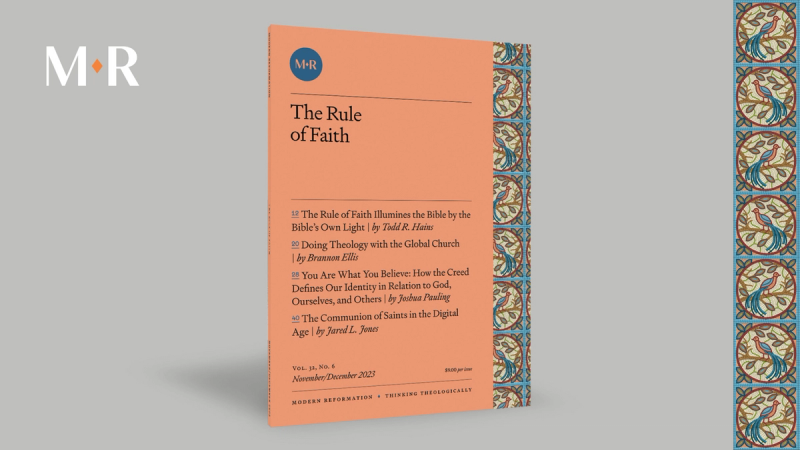One of my favorite moments in church is when the congregation recites the Apostles’ Creed after the sermon. It’s beautiful when the preaching of God’s word is followed by a collective congregational affirmation: “We believe it!” But there’s something else supremely fitting about this common practice of confessing a creed after the sermon. The creed not only embodies what all Christians believe in response to God’s word; it embodies what God’s word says in the first place. In the creeds, we confess what we believe God’s word means.
The phrase “rule of faith” occurs as early as the second and third centuries in the writings of church fathers Irenaeus and Tertullian. In one of the most famous examples of the rule, Irenaeus appeals against the gnostics to the church’s universal faith “in one God, the Father Almighty, who made the heaven and the earth and the seas and all the things that are in them; and in one Christ Jesus, the Son of God, who was made flesh for our salvation.” He goes on, summarizing orthodox belief in words largely identical to the later—but still ancient!—Nicene and Apostles’ Creeds we all know and love. (You can find the rest of Irenaeus’s summary of the rule in Josh Pauling’s essay in this issue.)
Secular historians often assume the ancient creeds were invented and imposed by church authorities to maintain theological conformity and thus control. Even Christians sometimes assume that the creeds, as an interpretive summary of inspired biblical teaching, are something purely human that the church came up with by ourselves. But the early church fathers are adamant that the church didn’t determine its own rule of faith. The church didn’t add to Scripture our faith in the Father, Son, and Holy Spirit and their work of creation and redemption. The church received this faith from Scripture. In The Canon of Scripture (IVP, 1988), biblical scholar F. F. Bruce puts it this way:
If at times [the rule of faith] is formally distinguished from Scripture in the sense that it is recognized as the interpretation of Scripture, at other times it is materially identical with Scripture in the sense that it sums up what Scripture says. (117)
Let me put a finer point on Bruce’s insight: The rule of faith isn’t the Bible, but neither is it something other than the Bible. We faithfully interpret the Bible according to the rule of faith because the rule, given by the Spirit in and through Scripture, is the Bible’s way of interpreting itself.
So when you confess the Apostles’ Creed or Nicene Creed at church on Sunday morning, you’re not only expressing the who and the what—your solidarity with the global church regarding the fundamental content of the Christian faith. You’re also expressing the how, because in the rule of faith God has shown us the way to faithfully understand his word.
Our God is Lord of both the speaking and the hearing.









